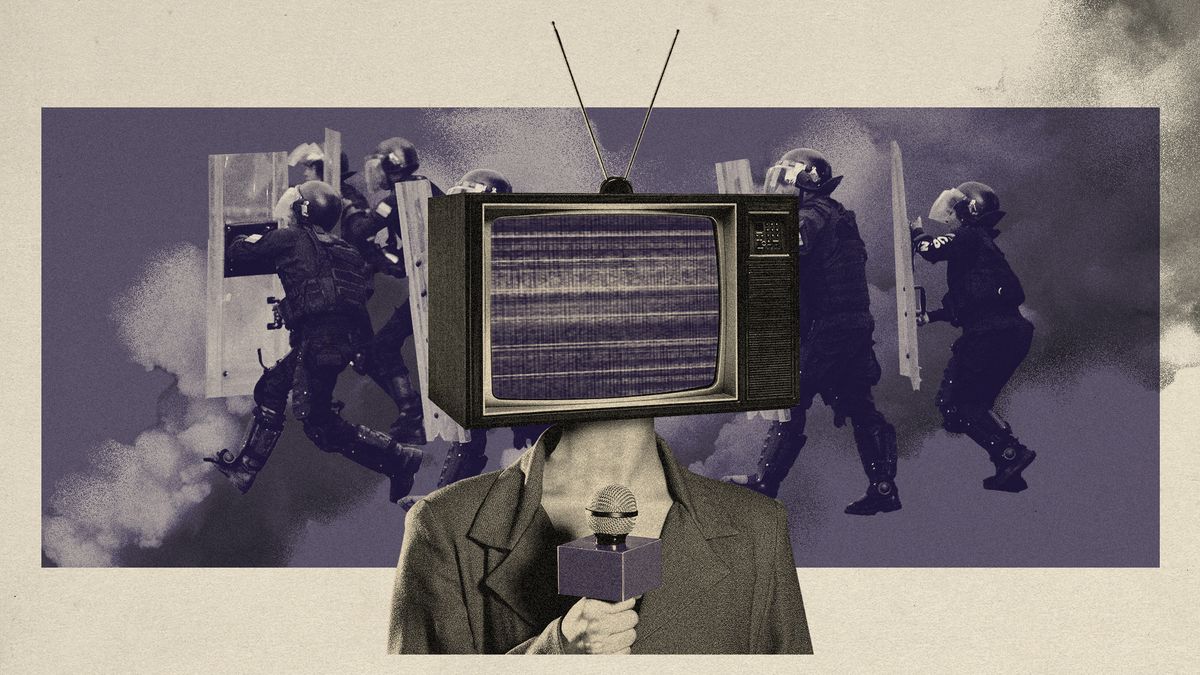
A group of Venezuelan media organisations has launched a news show using AI-generated anchors, said CNN.
“Venezuela Retweets” is hosted by two AI avatars named “La Chama” (the girl) and “El Pana” (the dude). They share real news created by journalists who have found “reporting the news an increasingly dangerous business”.
Many Western journalists may view artificial intelligence as a “looming threat to livelihoods” but these Venezuelan journalists see it “more favourably”, as a “protection”. The AI news anchors can “shelter their real-life journalists” from the crackdown launched by authoritarian leader Nicolás Maduro since he claimed victory in July’s disputed election.
Subscribe to The Week
Escape your echo chamber. Get the facts behind the news, plus analysis from multiple perspectives.
SUBSCRIBE & SAVE
Sign up for The Week’s Free Newsletters
From our morning news briefing to a weekly Good News Newsletter, get the best of The Week delivered directly to your inbox.
From our morning news briefing to a weekly Good News Newsletter, get the best of The Week delivered directly to your inbox.
“Right now, being a journalist in Venezuela is a bit like being a firefighter,” Carlos Eduardo Huertas, the director of Connectas (a Colombia-based platform coordinating the initiative) told the US broadcaster. “You still need to attend the fire, even though it’s dangerous. The Girl and The Dude want to be instruments for our firefighters: we don’t want to replace journalists but to protect them.”
Response to repression
“Restrictions on freedom of speech in Venezuela are nothing new,” said CNN.
But at least 16 journalists have been detained in the recent anti-government protests that erupted after Maduro claimed victory, according to Espacio Public, a Venezuelan organisation that measures freedom of the press. Some face charges of terrorism or incitement to hatred; others are “unsure even of what they are accused”, said CNN.
Journalists are now using “Venezuela Retweets” to report the news that Maduro’s regime “deems unfit to print”, said The Guardian. The initiative involves about 20 Venezuelan news and fact-checking outlets and about 100 journalists, whose content is turned into daily newscasts read by the AI-generated avatars.
Intense government censorship and threats against anti-Maduro content means that most Venezuelans get their news through social media. So, “Venezuela Retweets” is specifically designed to be shared on social media: the avatars read news in clips that can be posted on Instagram or Facebook, or forwarded on WhatsApp – which makes the videos harder to track.
In the debut broadcast in August, the female presenter explained that she and her co-host hoped to spread the word about “what is really happening in Venezuela”.
“But before we go on – in case you haven’t noticed – we want to let you know that we aren’t real,” the avatar added.
The use of AI is a response to “the persecution and the growing repression that our colleagues are suffering in Venezuela”, where the uncertainty over the safety of doing their job “grows by the minute”, Huertas told The Guardian. The increasingly authoritarian regime meant that “being on camera is no longer so sensible”.
Even the name Venezuela Retweets – “Operación Retuit” in Spanish – is an ironic nod to the chilling euphemism coined by Maduro’s regime for its harsh crackdown: “Operación Tun Tun” or Knock Knock.
AI as freedom of expression
Maduro’s government has also cancelled the passports of “dozens of journalists and activists” without explanation since the vote, said the Financial Times. Rights groups have described it as an “intensifying campaign of repression”, following what most nations have denounced as a stolen election.
The number of cancelled passports is likely to be far higher, the Caracas-based human-rights organisation Laboratorio de Paz told the FT, because of Venezuelans’ “fear of reporting cases”.
“Unlike murder or torture, which have a higher political cost, the government has found that passport cancellation is an effective way to neutralise and muffle critical voices with minimal effort,” said Rafael Uzcátegui, co-director of Laboratorio de Paz.
One journalist only discovered her passport had been cancelled while she was abroad. “I asked myself, ‘Now where do I come from?’,” she told the paper. She is not sure whether she will try to return home.
Maduro has also “moved to stifle online dissent”, said the FT, “blocking access to X” and “encouraging citizens to uninstall” WhatsApp.
“It’s a policy to instigate fear,” another Venezuelan journalist told the paper.
But “Venezuela Retweets” is “gaining traction”, said CNN. Organisations involved in freedom of the press elsewhere in Latin America have been in touch, said Huertas. He hopes to make the content available in Russian, Chinese and other languages to reach audiences in countries allied with Maduro.
In authoritarian nations, said CNN, there is a “widespread interest for using AI as a freedom-of-expression tool”.
Originally Appeared Here



